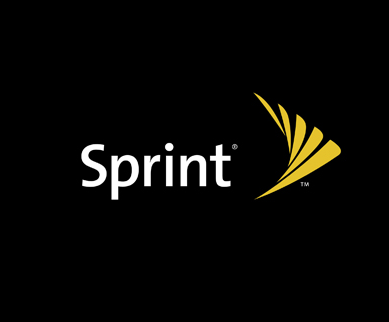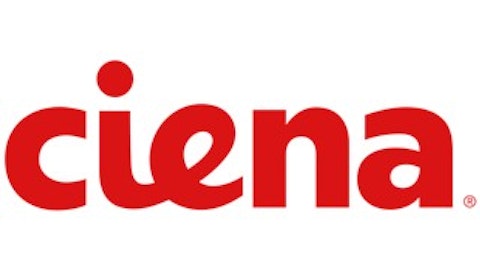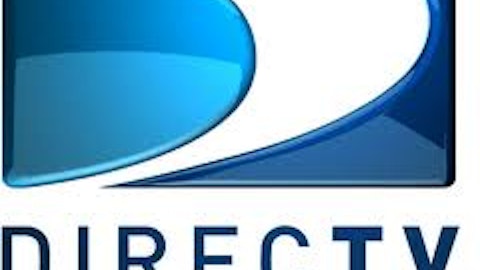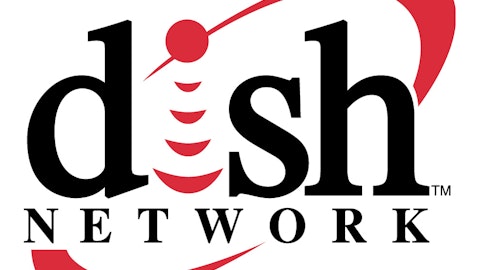SoftBank seems determined to become a major player within the United States. The company is heavily capitalized, and it even has the world’s friendliest bond market to back it in its attempt to buy out Sprint Nextel Corporation (NYSE:S). SoftBank hopes to beat DISH Network Corp (NASDAQ:DISH) from being able to buy out the ailing telecom company.
Bloomberg reports:
“Japan’s third-largest mobile phone operator plans to raise 400 billion yen ($4.2 billion) by issuing five-year notes, in the nation’s biggest retail offering by a non-financial company, according to data compiled by Bloomberg. The 1.74 percent yield offered by the securities compares with 0.295 percent for Japan’s sovereign bonds and the 4.25 percent rival bidder DISH Network Corp (NASDAQ:DISH). DISH Network Corp (NASDAQ:DISH) paid to sell similar-maturity debt in April.”
SoftBank’s probability of success is high
SoftBank is solely focused on mobile and has a very strong track record in the space. The company has been able to manage its costs effectively with a 50% EBITDA (earnings before interest, tax, depreciation, and amortization) margin, making it the most profitable mobile company in the world. To be fair, capital-expenditures would be substantially smaller when compared to the United States as Japan has a much smaller amount of land. Because the capital-ex spending is substantially smaller within Japan, the company can re-appropriate leftover cash into the United States to invest into Sprint Nextel Corporation (NYSE:S)’s network, which is why the potential synergies investors gain by accepting the SoftBank – versus Dish Network’s offer – are extremely high. After the merger and acquisition, Sprint shareholders can own SoftBank shares in order to benefit from the greater economies of scale.
One of the biggest disadvantages for long-term Sprint Nextel Corporation (NYSE:S) shareholders, if they accept the Dish Network deal, is the sheer amount of leverage the two companies would have when combined. This puts the company in a stressed financial situation that would limit any ability to grow as it would be more focused on paying down debt and interest payments. The money spent on interest would result in a decline in the total shareholder value. When considering Softbank can borrow money at a 1.74% interest rate, investors would better maximize return on invested capital by going with Softbank.

Source: SoftBank
The high leverage isn’t the only source of concern for Sprint Nextel Corporation (NYSE:S) shareholders. The sheer amount of time it would take for Sprint to close the transaction with Dish would mean a lot of lost opportunities.

Source: SoftBank
The company’s deal would be expected to close by the middle of 2013, but it could be 2014 or later for a deal between Sprint and Dish Network to close. Because of this, investors could end up watching Sprint’s business decline considerably during that time. Time is money, and the more time it takes to get a deal closed, the longer shareholders will have to wait. Not only that, there’s no guarantee that Dish Network will hold to its commitment of buying out Sprint if Sprint Nextel Corporation (NYSE:S)’s business condition worsens because of losses in its subscriber base, the company could lower the amount of money it would be willing to pay.
Is there a significant value addition?
I have a phone contract with Sprint Nextel Corporation (NYSE:S). The company has terrible 4G LTE coverage within the United States. Plus there are many instances where my 3G connection within Arizona wasn’t quite as fast as advertised. Sprint’s advertising of unlimited Internet would work, but only if the company would be willing to offer faster speeds. The most crucial thing for Sprint right now is to roll out a faster network and to gain greater mobile spectrum. This could be possible with SoftBank and its access to cheap Japanese credit from the bond market.

Source: PiperJaffray
Unlimited data matters to 37% of the respondents in the above survey from PiperJaffray, while 44% felt that having 4G LTE access is also important. Sprint owns a 14% market share, but this could improve if the quality of the network were to improve. Only 12% of mobile subscribers feel that Sprint has the best network overall, according to PiperJaffray. For the company’s position to change from being the third-best carrier within the United States, it would require heavy capital spending. Heavy capital spending would lead to network improvements, along with greater distribution capabilities through the opening of more retail locations, which could increase market share.
I believe that keeping unlimited data while improving network speeds could lead to it eventually having 20-35% of the mobile market share within the United States. If this were the case, then over time, SoftBank’s involvement in the United States could be extremely lucrative as it could double Sprint’s revenue just by offering its users a faster Internet connection and better retail support.
Competitive environment
Verizon Communications Inc. (NYSE:VZ) could be put under some significant pressure as the combined merger of SoftBank and Sprint would give both companies an equivalent economy of scale. Currently Sprint/SoftBank, if merged, will have 26.5 million handsets sold, according to Softbank. Verizon sells 28.8 million phones. Telecommunication is all about operating at greater economies of scale. Scale means higher profit margins, stronger pricing power, and better wireless networks.
Verizon Communications Inc. (NYSE:VZ) currently spends $9.9 billion on mobile capital expenditures. When Sprint/Softbank merges, the combined companies will spend $12 billion on capital expenditures. SoftBank will most likely expend less capital on Japanese telecom infrastructure and will instead re-appropriate that cash to Sprint’s 4G LTE network. SoftBank could instantaneously deploy $4.2 billion in borrowed cash on Sprint’s 4G LTE network, which would make Verizon’s strongest advantage of being the “best network” a diminishing advantage over time. Also, there’s virtually nothing Verizon Communications Inc. (NYSE:VZ) could do to counter SoftBank within Japan as SoftBank is the most dominant telecom provider in terms of users, speed, and profitability in Japan. Verizon will be put under a lot of pressure and may have to adopt a truly unlimited mobile package at a far lower price.
Conclusion
Verizon and AT&T could be in trouble as Sprint Nextel Corporation (NYSE:S) offers a compelling mobile package that provides unlimited Internet. What Sprint has needed is an able-bodied partner that could fully leverage Sprint’s product offering of an unlimited-data network. Survey data shows that Sprint is seen as a low-quality network, so if Sprint were able to provide unlimited Internet at high speeds, consumers may re-consider choosing Sprint as their network one more time.
The potential synergies between SoftBank and Sprint are too large for shareholders to pass up. Sprint and Dish Network when combined would be heavily burdened with debt. Shareholders would not be given added scale, and Dish Network has no real-world experience in the mobile space.
The merger between Sprint Nextel Corporation (NYSE:S) and Softbank is likely to happen, and if SoftBank offers a slightly higher bid, the board will unquestionably approve. Going with Dish Network is like trading dollars for pennies.
The article SoftBank Will Win Sprint originally appeared on Fool.com and is written by Alexander Cho.
Alexander Cho has no position in any stocks mentioned. The Motley Fool has no position in any of the stocks mentioned. Alexander is a member of The Motley Fool Blog Network — entries represent the personal opinion of the blogger and are not formally edited.
Copyright © 1995 – 2013 The Motley Fool, LLC. All rights reserved. The Motley Fool has a disclosure policy.





